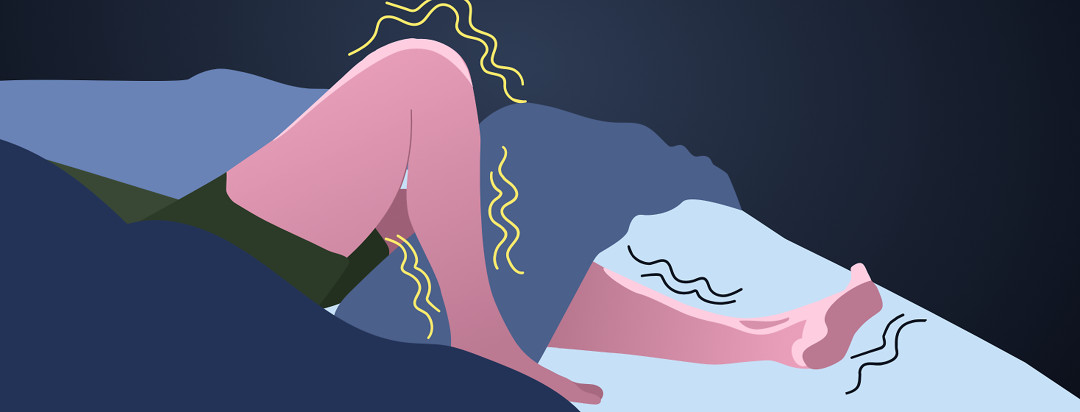Are Nightly Leg Movements Caused by MS...or RLS?
If you’ve already gone through the complex protocols that lead to a multiple sclerosis (MS) diagnosis, you know that an MS specialist is looking for a lot of things.
First, they attempt to identify MS-specific symptoms. You’re asked to rate pain and fatigue, to describe your concerns about balance, function, memory, speech, and other unusual sensations that concern you.1
They also review the results of a good number of tests to rule out possible “mimic” disorders such as lupus, vitamin B-12 deficiency, Lyme disease, and other neurological conditions that share many of the same symptoms. They may also test for other “non-mimic” conditions that may coexist alongside a potential MS diagnosis (this is what they mean by comorbid conditions). These could be concerns like rheumatoid arthritis, carpal tunnel syndrome, or neurological disorders like Parkinson’s disease.2
It can be impossible to really know which test is being used to identify which problem. (MS? Mimic? Non-MS mimic?)
One thing that you may – or may not – have been tested for is sleep disorders. In fact, you may not have been asked anything at all about your sleep health. Recent research suggests that it might be time to include surveys about sleep health in those diagnostic tests, as disorders of sleep may be symptomatic of MS, potential mimics, or comorbid conditions.3
In particular, data from a 2019 study show a meaningful connection between restless legs syndrome (RLS) and MS.3
What is restless legs syndrome (RLS)?
RLS describes unpleasant sensations in the legs, with an irresistible need to move them. RLS can happen at any time of day but is particularly disruptive in the evening as it can often kick in right before or at bedtime.4
Nighttime RLS can cause significant discomfort and anxiety. It may cause delays in falling asleep or insomnia as a result. People with untreated RLS also experience excessive daytime sleepiness caused by ongoing sleep loss.4
Could RLS be a symptom of MS?
It’s possible. RLS is a neurological problem that might fall into the same category as muscle spasticity when it comes to describing MS symptoms.
A 2021 study found that nearly 24 percent of people with MS have RLS, compared to fewer than 4 percent of people without MS. The study found that RLS in people with MS is also linked with greater disability, daytime sleepiness, and spinal disease activity on MRI scans.5
The difficulty in knowing the difference between an MS-related nocturnal leg cramp and RLS might be best resolved through a sleep study.
Could RLS be an MS comorbidity?
If you have both MS and RLS, it’s unlikely they exist independently of one another, given the findings 2019 study mentioned above.
A 2022 study also looked at the link between RLS and MS. It found that RLS is one of the most common comorbidities of MS, and RLS can increase both anxiety and depression in people with MS.6
The researchers concluded that awareness and treatment of RLS in people with MS may reduce the symptoms of anxiety and depression that stem from RLS.6
Talk to your doctor
It's important to discuss any sleep problems you might have with your MS specialist. They may not have asked about sleep before but could be inspired to refer you to a sleep lab to identify and treat any related issues. After all, good sleep is critical for disease management and healing.

Join the conversation